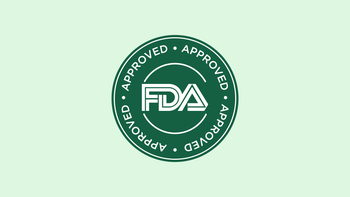
4 Ubrelvy Side Effects and How to Manage Them
Key takeaways:
Ubrelvy (ubrogepant) is a prescription medication that treats sudden migraine attacks in adults.
Ubrelvy is well-tolerated by most people. But nausea, fatigue, and dry mouth are some of the most common Ubrelvy side effects.
Rarely, Ubrelvy can cause allergic reactions. Seek emergency medical care right away if you experience trouble breathing or swelling of the face, mouth, or tongue.
Table of contents

Frequent migraines can have a profound impact on quality of life and affect the bulk of your day-to-day priorities — including your relationships, career, and mental health. As an added factor, the timing of migraine episodes can feel unpredictable and cause discomfort in inconvenient moments. It makes sense that migraines are the second-leading cause of disability worldwide.
Thankfully, many migraine treatments are available. Calcitonin gene-related peptide (CGRP) receptor antagonists, also referred to as “gepants,” are a newer class of medications used for treatment of migraine. Ubrelvy (ubrogepant) is one CGRP receptor antagonist used to treat sudden migraine attacks, with or without aura (visual, sensory, or speech changes), in adults.
Your healthcare provider may recommend taking Ubrelvy 50 mg or 100 mg oral tablets as needed for migraine symptoms. Ubrelvy is well-tolerated for most people, but as with any medication, side effects are possible. Read on to learn more about four Ubrelvy side effects and what to do if you experience them.
1. Nausea
Nausea was the most common Ubrelvy side effect in clinical trials. Up to 4% of people experienced it at some point, and it’s more likely with higher doses. It was also the most common side effect that led people to stop taking the medication, although this didn’t happen often overall.
Some minor dietary changes may help prevent nausea. You can try taking the medication with food if your migraine symptoms will allow it. Avoiding certain foods that can worsen nausea, such as spicy, fried, or acidic items, is also a good idea.
If you’re feeling nauseous, try limiting yourself to bland, starchy foods such as bananas, rice, applesauce, or toast. Foods like these are part of the BRAT diet, a temporary diet that can help manage nausea. Try to also eat smaller, more frequent meals and stay hydrated by drinking water. In some cases, your healthcare provider may suggest an over-the-counter medication such as an antacid or a prescription medication like Zofran (ondansetron).
Keep in mind: Nausea is also a possible migraine symptom — it’s not just a medication side effect. If your nausea doesn’t go away or becomes worse, let your healthcare provider know right away. They may want to reassess your treatment plan. They can also tell you what to do if you vomit shortly after taking Ubrelvy.
2. Fatigue and sleepiness
Fatigue and sleepiness are relatively common Ubrelvy side effects. About 2% to 3% of people experience these symptoms after taking a dose — most often with Ubrelvy 100 mg.
While these side effects are usually mild, that’s not the case for everyone. It’s important to understand how your body handles Ubrelvy before participating in activities that require mental alertness, such as driving a car. Once your body adjusts to taking Ubrelvy, see if you feel alert enough for these activities. This is especially important when you start taking Ubrelvy.
If you continually feel more tired than normal after taking Ubrelvy, talk with your healthcare provider. They may want to lower your dose or switch you to a different medication. They can also help you figure out if your migraines themselves are causing fatigue or sleepiness (or vice versa).
3. Dry mouth
Ubrelvy may cause dry mouth in about 1% to 2% of people who take it. This can make it hard to chew or swallow. Dry mouth can also make it difficult to enjoy food or speak comfortably.
Small lifestyle adjustments, such as drinking more water, can help counteract dry mouth. Other options include sucking on ice chips or enjoying sugar-free gum.
If you’re experiencing dry mouth that’s bothersome or isn’t going away, talk to your healthcare provider. They can help you figure out next steps regarding your treatment plan. Long-lasting dry mouth isn’t common with Ubrelvy. It usually goes away on its own after a dose wears off.
4. Allergic reactions
As with all medications, allergic reactions can happen after you take Ubrelvy. They can be mild or serious. Symptoms of a mild allergic reaction can include skin rashes, hives, or flushing. Symptoms of a more serious allergic reaction can include swelling in your throat or mouth, a sudden cough, or trouble breathing.
In Ubrelvy’s initial studies, most reactions happened within hours of taking the medication. But some reactions occurred days after taking it.
If you have any symptoms of a mild allergic reaction, you should stop taking Ubrelvy and speak to your healthcare provider. They can help get the situation under control. They may prescribe a different medication to manage your migraines going forward. But if you’re experiencing trouble breathing or swelling of the face, mouth, or throat, skip this step and seek emergency medical help right away. Serious reactions are rare.
Does Ubrelvy have the same side effects as other CGRP blockers?
Yes, Ubrelvy has similar side effects to other CGRP blockers. Nurtec ODT (rimegepant) and Zavzpret nasal spray (zavegepant) are CGRP blockers that also treat acute migraines in adults. Nurtec ODT can also prevent migraines.
Both medications have a similar side effect profile to Ubrelvy, with nausea being the most common side effect of Nurtec ODT. Nausea, taste changes, and nasal discomfort are the most common side effects of Zavzpret nasal spray. Nurtec ODT and Zavzpret have also been linked to allergic reactions.
What about CGRP monoclonal antibodies?
Other CGRP drugs are available for migraine prevention. Ajovy (fremanezumab-vfrm), Aimovig (erenumab-aooe), and Emgality (galcanezumab-gnlm) are given as under-the-skin injections to prevent migraines in adults. Vyepti (eptinezumab-jjmr) is used in a similar way, but it’s an intravenous infusion.
These CGRP monoclonal antibodies have different side effects than Ubrelvy and other “gepant” medications. For example, medications like Ajovy, Aimovig, and Emgality can cause pain, redness, and swelling at the injection site. Aimovig is also associated with constipation and muscle cramps or spasms. Vyepti has been linked to a stuffy nose and scratchy throat.
Remember: Ubrelvy is used for the acute treatment of migraines. It’s not approved for the prevention of migraines.
When should you contact your healthcare provider about Ubrelvy side effects?
Most Ubrelvy side effects are mild. But if you experience side effects that are bothering you or getting worse, contact your healthcare provider. They can recommend management tips.
If you experience symptoms of a serious side effect, such as trouble breathing or swelling of the face, mouth, throat, or tongue, that’s more urgent. Call emergency responders or visit the nearest emergency room right away.
To add a layer of complexity, many of Ubrelvy’s side effects overlap with the traditional symptoms of a migraine. If you feel your migraines aren’t adequately controlled on your current treatment plan, reach out to your healthcare provider. They may want to adjust your migraine medication.
The bottom line
Some of the most common Ubrelvy side effects include nausea, fatigue, and dry mouth. Ubrelvy can also cause allergic reactions, which may include swelling of the face, mouth, tongue, or throat. Talk to your healthcare provider or pharmacist if you have questions or concerns about Ubrelvy side effects.
Why trust our experts?



References
AbbVie, Inc. (2023). Ubrelvy® (ubrogepant) tablets, for oral use [package insert].
Ailani, J., et al. (2021). The American Headache Society consensus statement: Update on integrating new migraine treatments into clinical practice. Headache.
Dodick, D. W., et al. (2019). Ubrogepant for the treatment of migraine. The New England Journal of Medicine.
Martelletti, P., et al. (2019). Advances in orally administered pharmacotherapy for the treatment of migraine. Expert Opinion on Pharmacotherapy.
Pfizer Laboratories Div Pfizer Inc. (2023). NURTEC ODT- rimegepant sulfate tablet, orally disintegrating [package insert].
Pfizer Laboratories Div Pfizer Inc. (2023). Zavzpret- zavegepant spray [package insert].
Pradeep, R., et al. (2020). Migraine disability, quality of life, and its predictors. Annals of Neurosciences.
Was this page helpful?
Related Articles
Browse medications
View AllResearch prescriptions and over-the-counter medications from A to Z, compare drug prices, and start saving.














